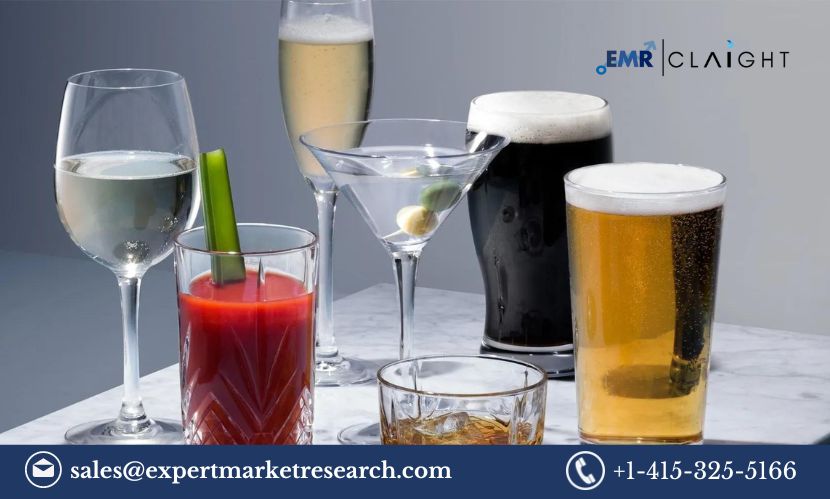South Korea Alcoholic Beverages Market Outlook
According to the report by Expert Market Research (EMR), the South Korea alcoholic beverages market size reached a value of USD 26.42 billion in 2023. Aided by evolving consumer preferences and the expansion of premium and craft alcoholic beverage segments, the market is projected to grow at a compound annual growth rate (CAGR) of 4.8% between 2024 and 2032, reaching a value of USD 40.31 billion by 2032.
Alcoholic beverages have long held cultural significance in South Korea, where they are not only consumed for recreational purposes but also play an integral role in social gatherings, traditional ceremonies, and business interactions. The market encompasses a broad range of products, including beer, soju, whisky, wine, and various types of spirits. In recent years, changing lifestyles, increasing disposable incomes, and exposure to global trends have led to the diversification of alcoholic beverage consumption, with a notable rise in the demand for premium and artisanal products.
Market Drivers
The growth of the South Korea alcoholic beverages market is primarily driven by a shift in consumer preferences, particularly among younger generations. There has been an increasing demand for high-quality, craft, and premium alcoholic beverages, with consumers seeking unique flavors and superior taste experiences. This trend is fueled by rising disposable incomes and a greater willingness to spend on luxury products. Moreover, the growing influence of Western culture and international trends has led to the increasing popularity of wine and craft beers, as well as imported spirits such as whisky and gin.
Soju, the traditional distilled spirit, remains the most widely consumed alcoholic beverage in South Korea. However, the market has seen a gradual shift toward lower-alcohol and flavored varieties of soju, which appeal to health-conscious consumers and those looking for a milder drinking experience. The introduction of new flavors and innovative packaging by leading soju manufacturers has revitalized the category, making it more attractive to younger consumers and expanding its appeal beyond traditional drinkers.
The beer segment also plays a significant role in the South Korea alcoholic beverages market. While domestic lagers have historically dominated the beer market, the rising popularity of craft beer has transformed the industry. Consumers are increasingly drawn to small-batch brews that offer unique flavors and higher quality than mass-produced options. The craft beer trend, combined with the growing availability of imported beers, has expanded the range of choices available to consumers, leading to greater market diversity.
Get a Free Sample Report with Table of Contents@ https://www.expertmarketresearch.com/reports/south-korea-alcoholic-beverages-market/requestsample
Technological Advancements and Product Innovation
Technological advancements and product innovation are playing a pivotal role in shaping the South Korea alcoholic beverages market. Beverage manufacturers are leveraging cutting-edge production techniques to enhance product quality and diversify their offerings. For example, breweries are adopting new brewing technologies to create beers with distinct flavors, while distilleries are experimenting with aging techniques and ingredient combinations to produce premium spirits.
Innovation is also evident in the packaging and marketing of alcoholic beverages. Brands are increasingly focusing on eco-friendly packaging solutions, such as recyclable cans and bottles, in response to growing environmental awareness among consumers. In addition, companies are using digital marketing and social media platforms to engage with younger audiences, promote new products, and build brand loyalty.
Flavored alcoholic beverages have also gained traction in the South Korean market, with consumers gravitating toward products that offer novel taste experiences. Flavored soju and fruit-infused wines are particularly popular, catering to a broad range of taste preferences and making alcoholic beverages more accessible to a wider demographic.
The Rise of E-Commerce in Alcoholic Beverage Sales
The increasing adoption of e-commerce platforms for the sale of alcoholic beverages is a significant trend in the South Korean market. The convenience of online shopping, coupled with the ability to compare prices and access a wide variety of products, has led to a surge in online alcohol sales. This trend was further accelerated by the COVID-19 pandemic, which prompted a shift in consumer behavior toward home consumption and online purchasing.
E-commerce platforms offer consumers easy access to a diverse range of domestic and imported alcoholic beverages, including wine, craft beer, and premium spirits. Online retailers also provide detailed product descriptions, user reviews, and recommendations, helping consumers make informed purchasing decisions. As a result, the online alcohol retail market in South Korea is expected to continue growing, providing a lucrative opportunity for brands to reach a broader audience.
Health Consciousness and Changing Consumption Patterns
A growing emphasis on health and wellness has influenced alcohol consumption patterns in South Korea. While traditional alcoholic beverages such as soju and beer remain popular, there is a rising demand for low-alcohol and non-alcoholic alternatives. Health-conscious consumers are increasingly seeking beverages that align with their desire for moderation while still providing enjoyable drinking experiences.
This trend has led to the introduction of low-calorie, low-alcohol, and alcohol-free beverages, which are gaining popularity, particularly among younger generations. Non-alcoholic beers, wines, and cocktails are becoming more widely available in bars, restaurants, and retail stores, catering to consumers who prefer to limit their alcohol intake without sacrificing social experiences.
In addition, the South Korean government has implemented initiatives to promote responsible drinking, which has contributed to the shift in consumption patterns. Educational campaigns and regulations aimed at reducing excessive alcohol consumption have encouraged moderation and helped drive the demand for healthier beverage options.
Read Full Report with Table of Contents@ https://www.expertmarketresearch.com/reports/south-korea-alcoholic-beverages-market
South Korea Alcoholic Beverages Market Segmentation
The market can be divided based on type, end use, and distribution channel.
Market Breakup by Type
- Beer
- Bottle
- Can
- Traditional Spirits
- Shochu/soju
- Maesilju
- Others
- Whiskey
- White Spirits
- Vodka
- Gin
- Wine
- Red Wine
- White Wine
- Sparkling Wine
- Rum
- Tequila and Mescal
- Liqueurs
- Brandy and Cognac
Market Breakup by End Use
- Pub, Bars, and Restaurants
- Retail
Market Breakup by Distribution Channel
- Hypermarkets and Supermarkets
- Convenience Stores
- Speciality Stores
- Department Stores
- Others
Competitive Landscape
The EMR report looks into the market shares, plant turnarounds, capacities, investments, and mergers and acquisitions, among other major developments, of the leading companies operating in the South Korea alcoholic beverages market. Some of the major players explored in the report by Expert Market Research are as follows:
- Anheuser-Busch InBev NV
- HiteJinro Co., Ltd
- Heineken NV
- Oriental Brewery Co.
- Lotte Chilsung Beverage Co., Ltd
- Casillero del Diablo
- Anheuser-Busch InBev SA/NV
- Carlsberg A/S
- Jeju Beer Co., Ltd.
- Beam Suntory Inc
- Muhak Co Ltd
- Diageo Plc
- Molson Coors Beverage Company
- Pernod Richard S.A.
- Asahi Group Holdings Ltd
- Others
Challenges and Opportunities
While the South Korea alcoholic beverages market is poised for continued growth, it also faces several challenges. One of the primary challenges is the evolving regulatory environment surrounding alcohol production, distribution, and marketing. Stricter regulations on alcohol advertising and promotional activities have been implemented to curb excessive consumption and promote responsible drinking. Beverage manufacturers must navigate these regulations while continuing to engage consumers and promote their products effectively.
Another challenge is the increasing competition from imported alcoholic beverages. South Korea’s free trade agreements with several countries have led to a rise in imports of foreign alcohol, including wine, whisky, and craft beer. While this has expanded consumer choice, it has also intensified competition for domestic producers, particularly in the premium and craft segments.
Despite these challenges, the South Korea alcoholic beverages market presents numerous opportunities for growth. The rising demand for premium, craft, and low-alcohol beverages offers potential for innovation and market expansion. Brands that can tap into emerging consumer trends, such as health-consciousness and the desire for unique drinking experiences, will be well-positioned to succeed in this dynamic market.
Media Contact:
Company Name: Claight Corporation
Contact Person: George buttler, Corporate Sales Specialist – U.S.A.
Email: sales@expertmarketresearch.com
Toll Free Number: +1-415-325-5166 | +44-702-402-5790
Address: 30 North Gould Street, Sheridan, WY 82801, USA
Website: http://www.expertmarketresearch.com
Aus Site: https://www.expertmarketresearch.com.au



